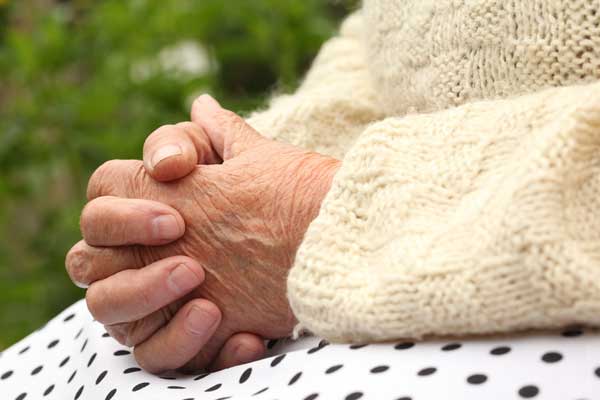
Many traditional health criteria have become outdated. We measure BMI and count how many glasses of water we drink per day. But is it right to do so?
1. Do you get enough water?

Old index: Drink 8 glasses of water per day
New index: urinate 5 times a day
If you squeeze all the water out of your brain, it will lose about three-quarters of its weight. Every cell in your body needs moisture to survive, and even mild dehydration reduces endurance, motivation and mental abilities.
According to director of the Men’s Clinic at the University of California, Jesse Mills, the problem is that old recommendations to drink eight glasses of water a day are too general. A man weighing 60 kg and his colleague, a CrossFit fan weighing 125 kg, obviously have different norms of drinking water. In general, we should stop counting the times we used a cooler. If you urinate 4-5 times a day (a total of about one liter of urine), it means that there is enough water in your life.
A tip for pros
A serious athlete can lose up to 10% of weight with sweat during a single workout. Compensate for the loss in a smart way: weigh yourself before and after exercises and then drink (slowly!) 1-1.1 liter of water for every kilogram of the gone weight.
2. Are you obese?

Old index: body mass index (BMI) below 25
New index: waist/hips below 0.9
We love the BMI because it is easy to calculate: get the square of your body height (in meters) and divide your weight (in kilograms) by this number, that’s all. However, a study conducted recently at the University of Texas showed that up to 10% of healthy men, involved in heavy physical labor, should be considered obese according to the BMI. This index does not care what contributes to “excess weight”: fat or muscles. But we want to know the truth, so here’s another simple option: measure the waist line at the navel and the hips at their widest point and divide the first number by the second one. Have you got 0.9, or even more? Then go to the gym and workout to reduce the risk of diabetes and hypertension.
A tip for athletes
To get rid of the tummy, you should forget about moderate workouts. Three interval trainings a week on a stationary bike (alternating an 8-second sprint with 12 seconds of relaxed riding for 20 minutes) are almost twice as effective for fat loss as the exercise of the same duration and tempo.
3. Assess the risk of stroke

Old index: Healthy total cholesterol
New index: Triglycerides level less than 150 mg/dl
According to Borg Nordestgaard from a hospital in the Danish town of Herlev, total cholesterol levels in the blood really help assess the risk of heart disease, but this criterion is not so useful in the case of stroke.
Nordestgaard and his colleagues examined nearly 14,000 people during 33 years of work in order to assert with confidence that the level of triglycerides (a type of fat) in the blood exceeding the normal range indicates the increased (sometimes twice higher) probability of developing a stroke. Therefore, one should undergo a blood test for lipids every 4-6 years and show the results to a doctor.
A tip for pros
Foods high in carbohydrates increase the level of triglycerides in the blood. Add some seasoning with antioxidants to your pasta – oregano, black pepper, garlic. Or drink a glass of wine: it contains about the same number of antioxidants.
4. Protect the health of your heart

Old index: eat less saturated fats
New index: spend at least 4 hours per day standing
Saturated fats were accused of all mortal sins a dozen years ago, when scientists proved their role in heart disease. Those studies have already been refuted, but the public opinion is more difficult to change. Once again, there is no evidence that saturated fats are directly harmful to your heart. But what exactly damages the heart is the sluggish lifestyle: the more you sit during the day, the higher is the risk of heart attack.
Canadian scientists have found that even daily attendance of the gym does not completely eliminate this damage (workouts are too short for doing that). You should not resist the pleasure of eating a steak. The main thing is to spend some time on your feet.
A tip for a good heart health
You do not have to stand all day long as if you were a hairdresser. In Australia, obese office clerks, who alternate sitting and standing (and change their posture every half hour) have successfully reduced their blood sugar levels by 11% compared with those who used to sit all day.
5. What is your life expectancy?

Old index: flexibility test
New index: grip strength test
The result is not given literally in years and months, but the flexibility test can provide some information. According to Japanese scientists, it matters how well you can sit on the floor, straighten your legs and touch your toes with your hands. The more flexible you are, the better your blood vessels and arteries feel. Still there is a better test: hand grip strength.
After observing 140,000 adults, the scientists have established a connection between a weaker grip and the greater risk of sudden death, stroke, or heart attack. The “practically healthy” indicator for an average middle-aged man is about 50 kgf. Find out whether there is a dynamometer in your gym and measure the grip strength.
A tip for grip strength
Strengthening the grip alone will not help improve your health. You should find out why you have weak hands: you don’t sleep well, you do not eat or just lack physical load? To improve the grip strength, do the exercise called “The farmer’s walk”: grab the heaviest dumbbells you can find and walk with them around the gym.
6. Strengthen the immune system

Old index: 1 glass of orange juice for breakfast
New index: 5 close friends
In 1970, it was considered that 1000 mg of vitamin C per day (the equivalent of 2.3 liters of orange juice) protects you from cold. But nowadays, Finnish researchers have examined 11,000 cases and found no link between vitamin C and the prevention of colds. What can help?
Scientists from the University of North Carolina have discovered that if people have a lot of real friends (not on Facebook), inflammatory processes are not so active in their body, and they are less likely to get sick. Today, the average man has only two close friends. Robin Dunbar, an evolutionary psychologist at Oxford, prescribes increased friendliness: five bosom friends are a good medication.
A tip for depression reduction
A study showed that pensioners, who visit friends and relatives at least three times per week, reduce the likelihood of depression by 77%, unlike the supporters of a hermit lifestyle. Dunbar says that social interaction is useful to everyone.






